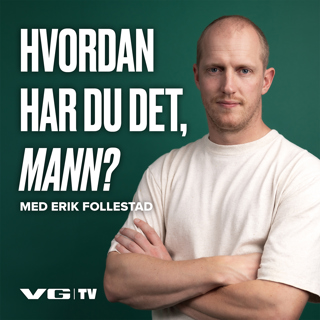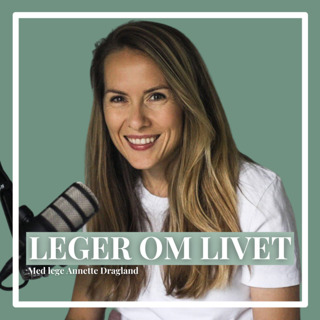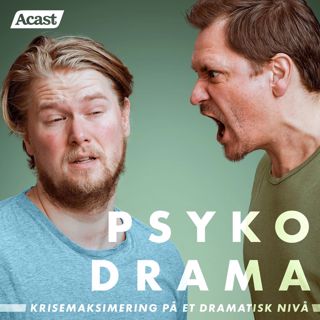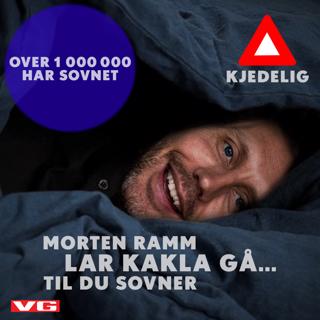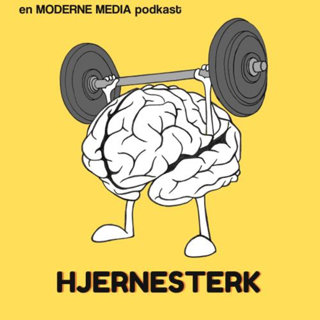
BITESIZE | Why Kindness Is Contagious and How to Make It Spread | David Hamilton #133
Every act of kindness is significant and has more impact than you can imagine. Feel Better Live More Bitesize is my new weekly podcast for your mind, body and heart. Each week I’ll be featuring inspirational stories and practical tips from some of my best former guests. This week’s guest is pharmacist-turned-author Dr David Hamilton. David explains why kindness is contagious and how just one small act of kindness is proven to have a ripple effect that reaches over 100 more people. When you’re kind to someone, it’s not just that person who benefits. Kindness makes you happier. It’s good for your heart and helps support your immune system. It slows ageing and it also improves relationships. He explains why your kindness matters and how you can take up the 7 Day Kindness Challenge. Kindness is important now more than ever – let’s help it spread. Show notes and the full podcast are available at drchatterjee.com/104 Follow me on instagram.com/drchatterjee/ Follow me on facebook.com/DrChatterjee/ Follow me on twitter.com/drchatterjeeuk DISCLAIMER: The content in the podcast and on this webpage is not intended to constitute or be a substitute for professional medical advice, diagnosis, or treatment. Always seek the advice of your doctor or other qualified health care provider with any questions you may have regarding a medical condition. Never disregard professional medical advice or delay in seeking it because of something you have heard on the podcast or on my website.
20 Nov 20207min

How Addictive Technology Keeps You Hooked with Professor Adam Alter #132
Do you find it hard to resist the ping of a new email, the urge to scroll on social media, or watch the next episode when streaming? Do you wish you could stop checking, clicking, liking and sharing? Then put down your phone and listen to this episode. My guest today is Adam Alter, an associate professor of marketing and psychology, bestselling author of ‘Irresistible: The Rise of Addictive Technology and The Business of Keeping Us Hooked’ and an expert on the compulsive nature of technology. Adam explains how tech companies make it their business to know exactly how to keep us engaged for hours on end. He shares some of the hooks embedded in products to ‘catch’ us, such as variable reinforcement (those likes and shares on social media), goals and rewards, and a lack of stopping cues (there’s always another video cued up, another game level to play…). And how do they know all these techniques work? Big data. They simply look at what makes us click. Tech giants prey on our capacity for ‘behavioural addiction’, which like other addictions can undermine our mental health and relationships. Playing with a phone is not just trivial distraction it can have real consequences, especially for our children – something that as a parent really concerns me. Adam suggests we should be teaching our kids ‘digital hygiene’ in schools and I couldn’t agree more. Of course, there are many positive uses of tech, like education, admin, communicating with loved ones we can’t see in person. But when screen time starts to harm our wellbeing, Adam says we need to look at what psychological needs it’s meeting. What’s lacking in our lives that leads us to numb the discomfort by picking up that phone or tablet? But it’s not all doom and gloom. Adam says, it is possible to live a rich, meaningful, healthy life in our tech-driven age. And we discuss some of the solutions we’re both using to wean ourselves and our families off screens. We agree it’s about intention, using tech where we need and enjoy it, but making a conscious decision to do without it at other times. Starting with an hour or two a day when you put your phone out of sight is a great example. If, like me, you’ve recently watched The Social Dilemma, Netflix’s fascinating (and scary) take on persuasive technologies and surveillance capitalism, I think you’ll really appreciate Adam’s insights – and his reassurance that tech addiction is not a human failing. Show notes available at drchatterjee.com/132 Follow me on instagram.com/drchatterjee/ Follow me on facebook.com/DrChatterjee/ Follow me on twitter.com/drchatterjeeuk DISCLAIMER: The content in the podcast and on this webpage is not intended to constitute or be a substitute for professional medical advice, diagnosis, or treatment. Always seek the advice of your doctor or other qualified health care provider with any questions you may have regarding a medical condition. Never disregard professional medical advice or delay in seeking it because of something you have heard on the podcast or on my website.
18 Nov 20201h 27min

Tim Spector: Why Everything You’ve Been Told About Food Is Wrong #131
It’s a bold claim: that (almost) everything you’ve been told about food is wrong. But by the end of today’s conversation, I think you’ll be questioning what you previously thought was true and embarking on a new way of eating that’s right for you. My guest, Tim Spector, is a Professor of Genetic Epidemiology and Head of the Department of Twin Research at King’s College London. He’s a leading expert on the gut microbiome whose work has transformed what we know about nutrition and health. Tim’s latest work highlights how much we really don’t know about food. Aside from the consensus that plant foods are good for us, ultra-processed junk foods are not, there’s very little evidence or expert agreement on anything else. So there’s most definitely not a one-size-fits-all ‘correct’ way to eat. During our chat we cover calorie counting, artificial sweeteners, the dangers of ultra-processed foods and how poor science lets the food industry maintain that its products are healthy, simply because they’ve not been proven to be harmful. We discuss the benefits of fasting, and the perception that you need to graze all day. The diet industry perpetuates the myth that if we don’t have a snack to hand at all times, we’ll have an energy dip, lack focus and we might even faint! For most of us, it’s actually the reverse that’s true. With this in mind, we agree that nutrition should be at the heart of the curriculum in schools. Our children can cope at school without mid-morning and afternoon snacks. I share Tim’s passion that we should be teaching our children how to recognise real versus fake food with the same enthusiasm that we teach them to read and write. I find the concept of personalised nutrition hugely empowering. As Tim states in his most recent book, ‘You are very unlikely to be average’. I’ve seen it first-hand with my patients, many of whom respond completely differently to the same ways of eating. It’s why I describe my approach as ‘diet agnostic’ and, like Tim, I’d actively encourage you to start experimenting with what, how and when you eat. I hope this conversation inspires you to explore what makes you thrive. Show notes available at drchatterjee.com/131 Follow me on instagram.com/drchatterjee/ Follow me on facebook.com/DrChatterjee/ Follow me on twitter.com/drchatterjeeuk DISCLAIMER: The content in the podcast and on this webpage is not intended to constitute or be a substitute for professional medical advice, diagnosis, or treatment. Always seek the advice of your doctor or other qualified health care provider with any questions you may have regarding a medical condition. Never disregard professional medical advice or delay in seeking it because of something you have heard on the podcast or on my website.
11 Nov 20202h 8min

Deepak Chopra on Waking Up to Your Full Potential #130
My goal with the podcast is to have conversations that matter. And as part of that process, I want to push and challenge myself, and by doing so, hopefully do the same for you. Today's guest is someone who entirely fits the bill. It is the one and only Dr. Deepak Chopra. Deepak is a medical doctor, a world-renowned pioneer in integrative medicine and personal transformation and Time magazine has described him as ‘one of the top 100 heroes and icons of the century’. He recently published his 91st book called ‘Total Meditation’, which offers an exploration of the physical, mental and spiritual benefits that a practice of meditation can bring. In our conversation today, we touch on a whole variety of different subjects, including the problem of instant gratification. We delve into how much of what we do and think is influenced by those around us. Many of us as we get older, or even in response to challenging life circumstances, whether it be grief, loss or heartache, are grappling with the eternal existential questions – Who am I? And why am I here? Deepak provides some really practical tools to help us answer these questions for ourselves. And he also shares some tried and tested techniques to help us get started with meditation. Deepak believes that most of us sleep walk through life and are not in control of our thoughts and feelings. The underlying theme throughout this conversation is how we can wake up to our full potential by accessing new levels of awareness that will ultimately cultivate a clear vision and help us rediscover who we really are. I found this conversation stimulating and felt my mind very much expanded afterwards. I hope it does the same for you. Show notes available at drchatterjee.com/130 Follow me on instagram.com/drchatterjee/ Follow me on facebook.com/DrChatterjee/ Follow me on twitter.com/drchatterjeeuk DISCLAIMER: The content in the podcast and on this webpage is not intended to constitute or be a substitute for professional medical advice, diagnosis, or treatment. Always seek the advice of your doctor or other qualified health care provider with any questions you may have regarding a medical condition. Never disregard professional medical advice or delay in seeking it because of something you have heard on the podcast or on my website.
4 Nov 20201h 10min

Why Women Are More Likely to Develop Alzheimer’s with Dr Lisa Mosconi #129
Women's brain health remains one of the most under researched, under diagnosed and under undertreated fields of medicine. Women are twice as likely as men to develop Alzheimer’s and twice as likely to become anxious or depressed. They are four times more likely to suffer with headaches and migraines and they are more prone to brain tumours and strokes than men. Today’s guest says this is a clear indication of functional differences between female and male brains. And she’s made it her life’s work to learn more about it. Neuroscientist Dr Lisa Mosconi is director of the Women’s Brain Initiative and works at the Alzheimer’s Prevention Clinic at Weill Cornell Medical College, US, where she studies how genetics, lifestyle and nutrition shape brain health, particularly in women. Lisa describes her frustration at constantly being told by peers that the reason Alzheimer’s was more prevalent in women was simply because they live longer, and it’s a disease of ageing. We discuss her ground-breaking research that has exposed this bias, finding dementia brain changes can actually begin in midlife, triggered by declining oestrogen during perimenopause. Worrying as that might sound, this discovery will enable women to take control of their risk at a much earlier age. Lisa goes on to share plenty of practical, evidence-based advice to help you do that. I was really moved hearing Lisa talk about the beautiful changes that happen in the female brain during pregnancy and post-partum. It’s a new take on the idea of ‘Mummy brain’ and will be validating for all mothers out there to hear. She also gives a clear and candid explanation of how perimenopause alters brain function. So many of my patients in their 40s and 50s are scared by changes like forgetfulness, brain fog and anxiety. If that’s you or someone you know, Lisa’s insights and advice will be really empowering. I’m a passionate advocate for women’s health equality. Yet chatting with Lisa made me realise how much more work we all have to do to get topics like these out there and understood. This conversation is relevant to all of us, women and men alike. I hope it gets you thinking and talking more. Show notes available at drchatterjee.com/129 Follow me on instagram.com/drchatterjee/ Follow me on facebook.com/DrChatterjee/ Follow me on twitter.com/drchatterjeeuk DISCLAIMER: The content in the podcast and on this webpage is not intended to constitute or be a substitute for professional medical advice, diagnosis, or treatment. Always seek the advice of your doctor or other qualified health care provider with any questions you may have regarding a medical condition. Never disregard professional medical advice or delay in seeking it because of something you have heard on the podcast or on my website.
28 Okt 20201h 52min

The Surprising Truth About Exercise with Professor Daniel Lieberman #128
Today’s episode will change the way you feel about exercise – and yourself. Do you ever feel guilty for taking the lift instead of the stairs? For swapping that workout for a lie in, or for having zero desire to run a marathon? If so, my guest has some reassuring words on why an aversion to exercise is completely natural. And some valuable advice on how we can overcome that to reap the multiple health benefits. Dr Daniel Lieberman is a paleoanthropologist and Professor of Human Evolutionary Biology at Harvard University. He has studied evolution and researched cultures all over the globe, to explain the science of how and why we move today. Whether you struggle to exercise or you’re a committed fitness fan, I think you’ll find his new perspectives on physical activity absolutely fascinating. Among the many topics we cover in this conversation, Daniel addresses the following questions: Can exercise really help you lose weight? Does running ruin your knees? Should we be running barefoot? Is sitting the new smoking? Do you need eight hours’ sleep a night? Should activity levels decline with age? I think some of his answers might really surprise you. I hope this conversation helps you feel better about the role of exercise in your life and have more compassion for yourself. I think it might just inspire you to move more, too. Show notes available at drchatterjee.com/128 Follow me on instagram.com/drchatterjee/ Follow me on facebook.com/DrChatterjee/ Follow me on twitter.com/drchatterjeeuk DISCLAIMER: The content in the podcast and on this webpage is not intended to constitute or be a substitute for professional medical advice, diagnosis, or treatment. Always seek the advice of your doctor or other qualified health care provider with any questions you may have regarding a medical condition. Never disregard professional medical advice or delay in seeking it because of something you have heard on the podcast or on my website.
20 Okt 20201h 45min

Wim Hof on Waking Up to Your True Potential #127
CAUTION ADVISED: This podcast contains swearing from the start. How long could you last in a freezing-cold shower? And for how long could you comfortably, peacefully hold your breath? My guest today insists you can learn to do both for far longer than you think. And that by doing so, you can battle disease, regulate your mood and connect with your true self. This podcast is a fascinating insight into the mind, work and charismatic personality of Wim Hof, aka The Iceman. Wim has been described as a ‘trailblazer for human potential’ and a ‘modern legend’, thanks to his incredible feats. They include withstanding extreme temperatures, climbing Kilimanjaro in nothing but shorts – even, as he describes to me, being injected with a toxin and resisting illness. But he is no mere showman, there is method to what some might see as madness. Wim wants to convince people they too can do the ‘impossible’ and prove it through evidence-based science. Brain scans now indicate we can take conscious control of our autonomic nervous system. But this sort of ‘top down’ regulation had been unknown in science before. We talk about cold-water immersion – and why he believes that ‘a cold shower a day keeps the doctor away’. He explains that cold stimulates vascular muscle tone, increasing blood flow, slowing heart rate, increasing energy and lowering cortisol. Wim gives practical advice to help all of us build from a tense, 10-second blast of cold at the end of a shower, to comfortably showering cold for two to three minutes a day. And with benefits like reduced inflammation, improved cardiovascular function and immunity, reduced depression and anxiety. Breathing techniques go hand in hand with his cold-water exercises, and we discuss how his particular practice can work to help us achieve peak functionality before endurance events, stressful times and more. Paradoxically, it involves over-breathing and breath-holding, to create a stressful spike in the body. Yet it results in a very tranquil sensation – and builds resilience to all kinds of stress, physical and mental, for the rest of the day. At the end of this podcast, Wim kindly agreed to take me through one round of his technique, so you can give it a try with me and experience the effects for yourself.* It felt incredible, like accessing a different state of calm. I really hope you can feel the positive energy in this unique conversation. CAUTION: If you have uncontrolled hypertension or heart disease it is not advised that you start practising cold water immersion. If you have any doubt at all as to whether you are fit enough to give this practice a go, please consult a qualified healthcare professional. Show notes available at drchatterjee.com/127 Follow me on instagram.com/drchatterjee/ Follow me on facebook.com/DrChatterjee/ Follow me on twitter.com/drchatterjeeuk DISCLAIMER: The content in the podcast and on this webpage is not intended to constitute or be a substitute for professional medical advice, diagnosis, or treatment. Always seek the advice of your doctor or other qualified health care provider with any questions you may have regarding a medical condition. Never disregard professional medical advice or delay in seeking it because of something you have heard on the podcast or on my website.
13 Okt 20201h 31min

How to Win at Life Without Losing Yourself with Dr Pippa Grange #126
Today’s episode is all about fear and how it holds us back in all aspects of our life. My guest is psychologist, Dr Pippa Grange, who has been hailed by the media ‘the doctor who helped transform the England football team’. Pippa is also author of the compelling book, Fear Less: How to Win at Life Without Losing Yourself. Fear is one of our body’s natural early warning systems. It alerts us when we’re under threat and need to take action. A bit like stress or inflammation, it’s something that’s useful to us in certain circumstances. But not when it becomes chronic and disrupts our entire sense of wellbeing. Pippa believes that behind every negative emotion, is the fear that we are not good enough. She sees fear as ‘the constant companion’ in our lives. Whether it manifests as loneliness, jealousy, dissatisfaction, perfectionism, judgement or shame, the root cause is actually the same. We discuss how we can all leave fear behind and gain what Pippa calls ‘mental freedom.’ We delve into how shame evolves in childhood, and how we need to shake out some of the narratives of how we ‘should’ behave. We also talk about how so many of us conform to societal ideals in order to avoid criticism but in so doing, we can strip ourselves of who we really are. In fact, by pretending to be someone else, Pippa believes we are only performing at life, not living it. We explore the concept of a ‘scarcity mindset’ – the false idea that there’s not enough to go around, whether that be love, success, respect or admiration. We also talk about how schools would be the best place to instil these ideas, and help our children understand that winning and losing are just outcomes and not their worth. Finally, Pippa explains how by noticing and sitting with our own fears, we can find our real passions and deeper fulfilment. This conversation is full of wisdom and insight and I am sure you are going to really enjoy it! Show notes available at drchatterjee.com/126 Follow me on instagram.com/drchatterjee/ Follow me on facebook.com/DrChatterjee/ Follow me on twitter.com/drchatterjeeuk DISCLAIMER: The content in the podcast and on this webpage is not intended to constitute or be a substitute for professional medical advice, diagnosis, or treatment. Always seek the advice of your doctor or other qualified health care provider with any questions you may have regarding a medical condition. Never disregard professional medical advice or delay in seeking it because of something you have heard on the podcast or on my website.
6 Okt 20201h 57min




